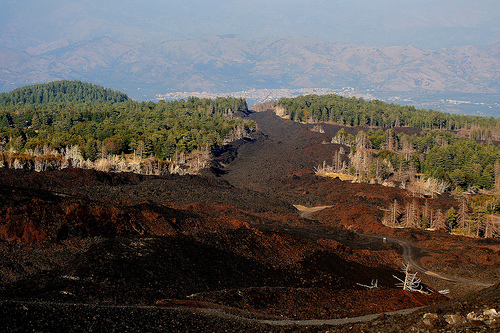Don’t Count on Technology to Save Us

In 1968, a highly-respected population biologist at Stanford named Paul Ehrlich published a best-selling book called “The Population Bomb,” warning of global famine as the global population grew faster than the world’s food supply. The growing population, he argued, would put such a strain on the world’s resources that we were on the verge of “a genuine age of scarcity.” He was famously challenged by a professor at a business school named Julian Simon, who bet him that not only were we not on the verge of an age of scarcity, but that over the course of a decade, commodity prices would actually fall. Temporary commodity shortages would give people an incentive to find substitutes and unexpected technological solutions to resource problems. Sure enough, in spite of a few famines caused by local food shortages, thanks to increasing agricultural yields made possible by the technologies of the “Green Revolution” world food production more than kept up with population growth. And commodity prices fell just as Julian Simon had predicted.
It’s a story that is told again and again by environmental skeptics. In their new book, “Superfreakonomics,” Steven Levitt and Stephen Dubner tell a similar story. In the 19th century, New York seemed on the verge of a major health crisis caused by the enormous amounts of manure generated by the horses used to transport people and supplies. But the problem unexpectedly disappeared almost overnight with the invention of the automobile. As Levitt and Dubner write, “When the solution to a given problem doesn’t lie right before our eyes, it is easy to assume that no solution exists. But history has shown again and again that such assumptions are wrong.”
Levitt and Dubner use this story—which Elizabeth Kolbert aptly calls “the parable of horseshit”—to argue that we worry too much about global warming. While global warming may be real, they believe some technological solution will emerge to mitigate its impact. In particular, they suggest that by seeding the atmosphere with large amounts of sulfur dioxide, we can block a percentage of the sun’s light—just as happens in any major volcano eruption—and cool the earth back down. Cutting back our carbon footprints now—before a real technical fix is available—would waste resources and entail needless hardship.
Of course, the idea that we are likely to come up with unanticipated technical answers to environmental problems is not horseshit. Sometimes when we think disaster is inevitable, it may simply be a failure of the imagination. But neither have we managed to avert all environmental disasters. History is full of famines and health crises that humans brought upon themselves. And while the Green Revolution may have temporarily averted a global food crisis, the U.N. just reported that nearly a billion people around the world right now are unable to get enough calories. In his book “Collapse,” Jared Diamond makes a compelling case than a number of civilizations—like Mayans or the Norse of Greenland—may have collapsed completely because they destroyed their own environment. So we can counter the parable of horseshit by telling the story of the society that failed to heed the signs of impending disaster.
The truth is that we are already feeling the effects of global warming—even sooner than most scientists had expected. Rising sea levels threaten to submerge the entire island nation of the Maldives. And the loss of arctic sea ice threatens to drive polar bears to extinction. These are just a few of the most visible early warning signs. There are theoretical reasons, in any case, to think that it may be easier to slow rising temperatures now, before climatic feedback processes further amplify the changes we have set in motion. And while some geoengineering scheme like the one Levitt and Dubner propose might work, the truth is that we don’t yet know what’s possible or what’s safe.
It would be nice to believe that we won’t have to make any real sacrifices to combat global warming and that the crisis that looms on the horizon will magically disappear. We have certainly shown little indication that we are willing to significantly reduce how much fuel we use or change the way we live—and the prospects for a climate treaty do not look good. But it would be foolish to count too much on the last-minute appearance of some technical fix to save us from disaster. And like so many attempts to rationalize away unpleasant problems, the reasons Levitt and Dubner offer for dismissing global warming are so poorly thought-through and intellectually irresponsible—Raymond Pierrehumbert carefully shows, for example, how ridiculous is their claim that solar cells actually contribute to global warming—that they verge on out-and-out fraud. We can certainly hope that the problems presented by global warming will not prove to be as intractable as they seem. But we would nevertheless be wise to trust the best available science, and plan on the basis of what we know now.





